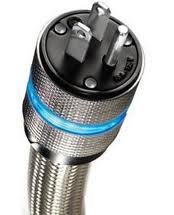ANSI Electric Vehicles Standards Panel Begins Work
 |
Jim Matthews of Corning and Jim Pauley of Schneider Electric Lead Panel as Co-chairs
NEW YORK--June 27, 2011: On June 20-21, the American National Standards Institute (ANSI) Electric Vehicles Standards Panel (EVSP) gathered in Detroit to lay the groundwork for a strategic roadmap that will define the standards and conformance programs needed to enable the widespread acceptance and deployment of electric vehicles and associated infrastructure in the United States.
Electric vehicles are being championed by government, industry, and consumers for their potential to advance energy security by reducing the nation's dependence on foreign oil, promote environmental stewardship, and create jobs and economic growth through their widespread introduction into the marketplace. As a key component to securing America's clean energy future and spurring innovation, President Barack Obama announced the goal of putting one million electric vehicles on the roads by 2015.
In support of this national priority, ANSI formed the EVSP to offer a neutral forum where public- and private-sector stakeholders can work cooperatively toward solutions that will help build the market for electric vehicles. Co-chaired by Jim Matthews, director, technical standards and standards policy, Corning Incorporated, and Jim Pauley, senior vice president, external affairs and government relations of Schneider Electric, the goal of the EVSP is to produce a standardization roadmap by year's end that will identify the standards and conformance programs needed to support the safe mass deployment of electric vehicles.
"This is a critical time in the development of the technology for electric vehicles," said Mr. Matthews. "The standardization community has an absolutely critical job to do to ensure that the necessary standards and related conformity assessment programs are in place to support the development of the EV market."
"Our trading partners already have undertaken initiatives to advance the dialogue on EVs," added Mr. Pauley. "Our nation and all of us stand to gain if we work cooperatively to carve out a vision for this burgeoning technology in a way that is effective, efficient, and economically beneficial for U.S. industry and safe and effective for consumers."
At the June meeting, EVSP participants took steps to organize eight working groups that have been formed to carry out this work. This included identification of key standardization issues of concern in relation to electric vehicles as well as the related infrastructure and support services sustaining them.
The decision to form the EVSP was reached at a March 4 meeting of an interim steering committee convened by ANSI in response to suggestions that the U.S. standardization community needs a coordinated approach to keep pace with electric vehicles initiatives moving forward in other parts of the world. The need for the panel was reinforced at the April 5-6 ANSI Workshop: Standards and Codes for Electric Drive Vehicles that looked at standards, codes, conformance and training issues.
Participation in the EVSP is open to all affected parties, including representatives of the automotive, electrotechnical and utilities industries, relevant trade associations, standards development and conformity assessment organizations, government agencies, and academia. More than forty public and private sector organizations representing a good cross section of affected stakeholders have already joined the EVSP initiative.
About
ANS
I
The American National Standards Institute (ANSI) is a private
non-profit organization whose mission is to enhance U.S. global
competitiveness and the American quality of life by promoting,
facilitating, and safeguarding the integrity of the voluntary
standardization and conformity assessment system. Its membership is
comprised of businesses, professional societies and trade associations,
standards developers, government agencies, and consumer and labor
organizations. The Institute represents the diverse interests of more than
125,000 companies and organizations and 3.5 million professionals
worldwide.
The Institute is the official U.S. representative to the International Organization for Standardization (ISO) and, via the U.S. National Committee, the International Electrotechnical Commission (IEC), and is a U.S. representative to the International Accreditation Forum (IAF).


